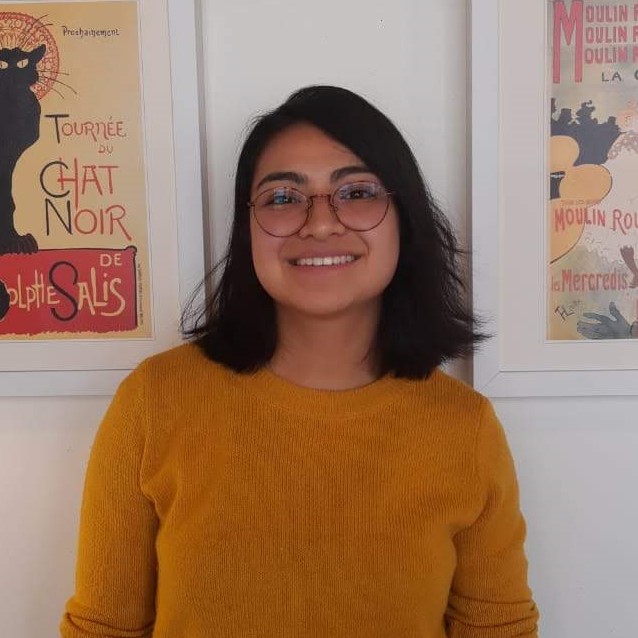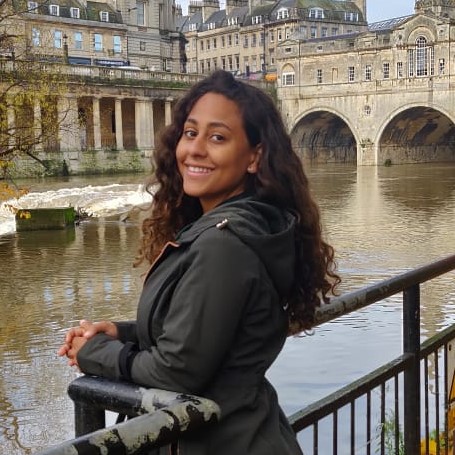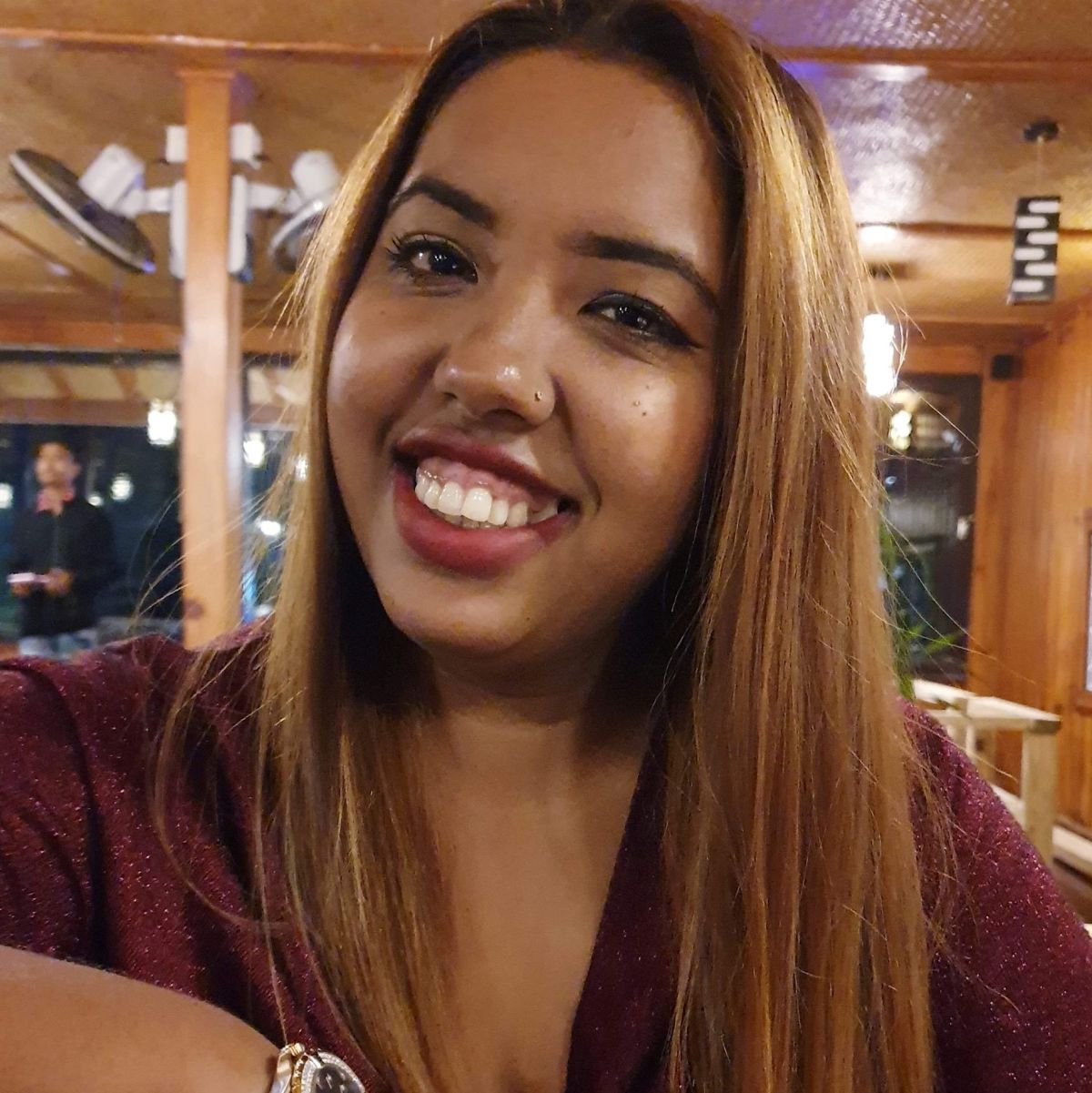Als Frau in Südkorea und Mexiko
Ich war schockiert, als mir klar wurde, dass die Behörden in Mexiko niemals solch eine Stellungnahme nehmen würden, wie es die koreanische Regierung jetzt tat.
Mexico, Cenral America
Eine Geschichte von Olga Mata. Übersetzt von Veronica Burgstaller
Veröffentlicht am August 22, 2020.
Diese Geschichte ist auch verfügbar in 





Auf dem Foto zu sehen sind auf der einen Seite das berühmte Denkmal "Minerva" in Mexiko City - gefärbt in rot, um die Femizide von 2020 zu symbolisieren, und auf der anderen Seite die Me-Too Bewegung in Südkorea 2019.
Eine Veränderung beginnt immer dann, wenn eine Frau ausspricht, dass sie Feministin ist.
Einige Tage bevor ich als Austauschstudentin nach Südkorea reiste, erhielt ich ein paar Einladungen von meinen Freundinnen und Freunden der Universität, am jährlichen Protest für die Gleichstellung der Geschlechter mitzumachen, der jedes Jahr am 8. März in Mexiko City[1] stattfindet. Hier verurteilen Tausende von Menschen die Gewalt, die wir als mexikanische Frauen jeden Tag erleben müssen - in Formen, die von sexueller Belästigung auf der Straße bis hin zu Vergewaltung und sexuell motivierten Hassverbrechen wie Femiziden (Mord an Frauen) reichen.
Da ich in Südkorea war, konnte ich diesmal nicht teilnehmen und meine Unzufriedenheit zum Ausdruck bringen. Dennoch erlebte ich etwas anderes, das meine Gedanken zur Gewalt gegen Frauenrechte prägte.
Kurz nachdem ich in Südkorea angekommen war, fand ich mich auf einer Polizeistation in der koreanischen Stadt Busan wieder. Ich war mit zwei meiner neuen Freunde dort, weil sie einen älteren Mann zur Anzeige brachten, der an diesem Tag ohne ihrer Zustimmung Fotos von ihnen in Bikinis gemacht hatte. Es stellte sich heraus, dass die Tat, bloßstellende Fotos zu knipsen, in Südkorea als sexuelles Gewaltverbrechen gilt, das mit Gefängnis oder einer Geldstrafe von bis zu 7.000 US-Dollars[2] bestraft werden kann. Ich war schockiert, als mir klar wurde, dass die Behörden in Mexiko niemals solch eine Stellungnahme nehmen würden, wie es die koreanische Regierung jetzt tat.
Nachdem ich ein wenig recherchiert hatte, fand ich heraus, dass dieses Verfahren erst kürzlich, und zwar im Dezember 2016, nach mehreren Protesten meist junger koreanischer Frauen, die gegen illegale Kameraaufnahmen, als eine Form der geschlechtsspezifischen Gewalt[3], kämpften, eingeführt wurde. Dieses Beispiel hat mir gezeigt, dass es uns Frauen gelingen kann, die öffentliche Politik zur Bekämpfung des Problems der geschlechtsspezifischen Gewalt zu beeinflussen.
Obwohl Mexiko auch eine Politik zur Bekämpfung geschlechtsspezifischer Gewalt umgesetzt hat[4], werden die Rechte der Frauen weiterhin verletzt, und es herrscht weiterhin Straflosigkeit. Leider halten es die meisten Mexikanerinnen und Mexikaner nach wie vor für "normal", dass Männer in öffentlichen Verkehrsmitteln oder auf der Straße Fotos von Frauen ohne deren Einwilligung machen. Schließlich wird die Polizei unsere Aggressoren ohnehin nicht bestrafen. Aber solange wir diese Ereignisse nicht melden, wird die Straflosigkeit weiterhin bleiben.
Es ist nicht so, dass wir nicht aktiv sind. Am Internationalen Frauentag färbten mexikanische Feministinnen öffentliche Brunnen rot, um die Frauen zu repräsentieren, die täglich ermordet werden, und um das soziale Bewusstsein zu schärfen, wie auf dem Foto zu sehen ist.
In Südkorea wurden zwar massive öffentliche Versammlungen aufgrund des COVID-19 behindert, aber die erste Feministische Partei Südkoreas wurde als symbolische Gedenkveranstaltung am 8. März[5] ins Leben gerufen. Am Ende müssen die Frauen weiterhin für das Recht kämpfen, sich überall sicher fühlen zu können.
Sowohl in Mexiko als auch in Südkorea wird der Internationale Frauentag für Frauen daher zumindest noch ein paar Jahrzehnte lang ein Tag bleiben, wo sie ihre Ansichten aussprechen, anstatt ein Tag sein zum feiern.
Fußnoten
[1] Averbuch, M. (9 Mar 2020), “'We'll disappear': Thousands of Mexican women strike to protest femicide”, in The Guardian, from: https://www.theguardian.com/world/2020/mar/09/thousands-mexican-women-protest-violence-murders-femicide-government-inaction
[2] Dies wird durch das Gesetz über Sonderfälle betreffend die Bestrafung usw. von Sexualverbrechen festgelegt. Kapitel II, Artikel 14. Ausführliche Informationen unter: https://elaw.klri.re.kr/eng_service/lawView.do?hseq=40947&lang=ENG
[3] Für weitere Informationen: https://www.bbc.com/news/world-asia-50582338
[4] Zu den Initiativen gehören das "Nationale System zur Prävention, Aufmerksamkeit, Sanktionierung und Beseitigung von Gewalt gegen Frauen" und die koordinierten Bemühungen von UN-Frauen mit dem "Mexikanischen Fraueninstitut". Weitere Informationen: https://mexico.unwomen.org/es/nuestro-trabajo/eliminar-la-violencia-contra-mujeres-y-ninas
[5] Näheres dazu: https://www.thejakartapost.com/news/2020/03/03/south-koreas-first-feminist-party-launches-on-international-womens-day.html
Was macht diese Geschichte mit dir?
Follow-up
Do you have any questions after reading this story? Do you want to follow-up on what you've just read? Get in touch with our team to learn more! Send an email to [email protected].
Unterhalte Dich über diese Geschichte
Please enable cookies to view the comments powered by Disqus.
Subscribe
Melde Dich an für unseren monatlichen Newsletter und bleibe up-to-date mit neuen Geschichten auf Correspondents of the World.
Mehr Geschichten auf Deutsch
Tags
Erkunde andere Themen
Mach mit
At Correspondents of the World, we want to contribute to a better understanding of one another in a world that seems to get smaller by the day - but somehow neglects to bring people closer together as well. We think that one of the most frequent reasons for misunderstanding and unnecessarily heated debates is that we don't really understand how each of us is affected differently by global issues.
Unser Ziel ist es, dies zu verbessern - und zwar mit jeder Geschichte, die wir teilen.
Community Weltweit
Correspondents of the World is not just this website, but also a great community of people from all over the world. While face-to-face meetings are difficult at the moment, our Facebook Community Group is THE place to be to meet other people invested in Correspondents of the World. We are currently running a series of online-tea talks to get to know each other better.
























